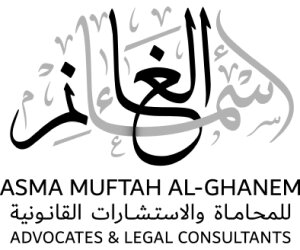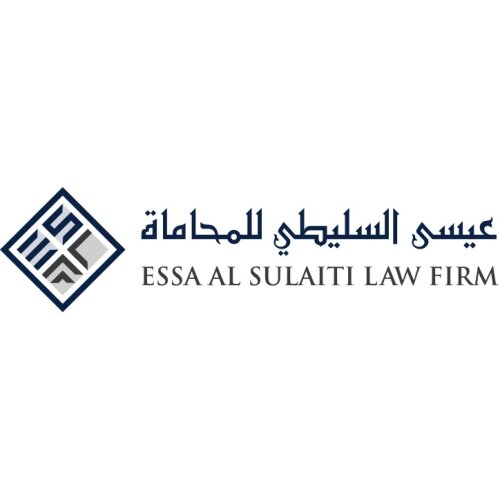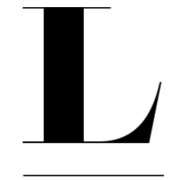Best Foreclosure Lawyers in Qatar
Share your needs with us, get contacted by law firms.
Free. Takes 2 min.
Free Guide to Hiring a Real Estate Lawyer
Or refine your search by selecting a city:
List of the best lawyers in Qatar
About Foreclosure Law in Qatar
Foreclosure in Qatar is a legal process that occurs when a borrower fails to meet the obligations of a mortgage or loan agreement, leading the lender to take legal action in order to recover the funds owed. This typically involves the lender taking possession of the property and selling it to satisfy the debt. In Qatar, foreclosure is governed by a mix of Islamic law principles, local regulations, and contractual terms agreed upon by the parties involved. It's crucial for both lenders and borrowers to understand the legal landscape to navigate the process effectively.
Why You May Need a Lawyer
Foreclosure is a complex legal issue that can significantly impact your financial status and living situation. Common scenarios where you might require legal assistance include:
- Receiving a foreclosure notice and wanting to understand your legal rights and obligations.
- Negotiating with lenders to modify loan terms or settle debts.
- Understanding specific contractual details and local laws that affect your case.
- Challenging a foreclosure proceeding that you believe is unjust or illegal.
- Exploring alternatives to foreclosure such as refinancing or selling the property.
Legal advice can help you protect your rights, explore all possible options, and potentially help you reach a more favorable outcome.
Local Laws Overview
Key aspects of local laws regarding foreclosure in Qatar include:
- The application of both Islamic and conventional property law principles.
- The need for lenders to follow specific legal procedures before proceeding with foreclosure.
- The role of the Qatar Central Bank in regulating mortgage and foreclosure practices.
- The requirement that foreclosure actions be brought before the competent court.
- The possibility of legal defenses and options such as challenging the validity of the mortgage agreement or disputing the amount claimed.
Understanding these laws can help you navigate the foreclosure process more effectively and may provide grounds for legal action if the lender has not adhered to procedural requirements.
Frequently Asked Questions
What is foreclosure?
Foreclosure is a legal process by which a lender seeks to recover the balance of a loan from a borrower who has stopped making payments by forcing the sale of the asset used as collateral.
How long does the foreclosure process take in Qatar?
The timeframe can vary based on court schedules, the specific circumstances of the case, and any legal challenges raised by the borrower, but it typically spans several months.
Can I stop a foreclosure once it starts?
Yes, stopping a foreclosure may be possible through negotiation, legal defenses, or by meeting the lender’s terms such as catching up on missed payments.
Are there alternatives to foreclosure?
Yes, alternatives may include loan modification, refinancing, selling the property, or entering into a deed in lieu of foreclosure.
Do I need to attend court for a foreclosure proceeding?
While not always mandatory, attending court is advisable as it allows you to defend your rights and interests.
Is it possible to get my property back after foreclosure?
Once a property is foreclosed and sold, reclaiming it is difficult unless there is legal recourse, such as proving lender misconduct or procedural errors.
What are the costs associated with foreclosure?
Costs can include legal fees, court costs, and potentially the difference between the sale price of the foreclosed property and the remaining loan balance.
How does foreclosure affect my credit in Qatar?
A foreclosure can severely impact your credit score, making it challenging to secure loans or credit in the future.
What happens to any equity I have in the property?
If the property sells for more than what is owed, any remaining equity should legally be returned to you, though there may be deductions for fees or additional claims.
Can a lawyer help if the lender violates foreclosure laws?
Yes, a lawyer can help challenge the foreclosure process or seek damages if the lender has violated any local foreclosure laws or procedures.
Additional Resources
For those seeking further information or assistance, consider the following resources:
- The Qatar Central Bank: Provides guidelines on mortgage lending practices.
- Local legal aid organizations: Can offer free or low-cost legal consultation.
- The Qatari Bar Association: For finding accredited lawyers specializing in property law.
- Ministry of Justice: May provide public information on property and foreclosure laws.
Next Steps
If you need legal assistance regarding foreclosure, consider taking the following steps:
- Consult with a specialized lawyer who understands both local and international property laws.
- Gather all relevant documentation, including loan agreements, payment records, and any correspondence with your lender.
- Evaluate all available options with your lawyer, including defending against foreclosure, negotiating with the lender, or pursuing alternatives.
- Act promptly to address any foreclosure notices or legal actions to avoid unnecessary complications or loss of rights.
Lawzana helps you find the best lawyers and law firms in Qatar through a curated and pre-screened list of qualified legal professionals. Our platform offers rankings and detailed profiles of attorneys and law firms, allowing you to compare based on practice areas, including Foreclosure, experience, and client feedback.
Each profile includes a description of the firm's areas of practice, client reviews, team members and partners, year of establishment, spoken languages, office locations, contact information, social media presence, and any published articles or resources. Most firms on our platform speak English and are experienced in both local and international legal matters.
Get a quote from top-rated law firms in Qatar — quickly, securely, and without unnecessary hassle.
Disclaimer:
The information provided on this page is for general informational purposes only and does not constitute legal advice. While we strive to ensure the accuracy and relevance of the content, legal information may change over time, and interpretations of the law can vary. You should always consult with a qualified legal professional for advice specific to your situation.
We disclaim all liability for actions taken or not taken based on the content of this page. If you believe any information is incorrect or outdated, please contact us, and we will review and update it where appropriate.
Browse foreclosure law firms by city in Qatar
Refine your search by selecting a city.

















